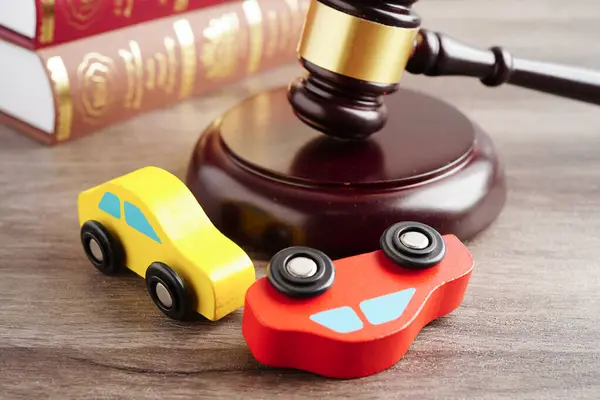California Vehicle Lemon Law: What Every Car Owner Should Know About Defective Vehicles
Purchasing a vehicle is a significant investment, and it's understandably frustrating when your new car doesn’t meet your expectations. In California, the Lemon Law is designed to protect consumers who buy or lease new cars that turn out to be defective. This article covers key aspects of California's Lemon Law, including what qualifies a vehicle as a “lemon,” the steps to take if you suspect your car is defective, and how you can seek recourse.
Understanding the Lemon Law
What is the Lemon Law?
The Lemon Law, formally known as the Song-Beverly Consumer Warranty Act, protects consumers who purchase or lease new vehicles with significant defects that impair their use, value, or safety. If a manufacturer fails to repair these defects after a reasonable number of attempts, the law requires them to either replace the vehicle or provide a refund. It primarily applies to vehicles bought or leased for personal use within the warranty period.
Who is Covered?
The Lemon Law covers consumers who purchase or lease new vehicles intended for personal, family, or household use, including cars, trucks, and SUVs. It does not typically apply to used vehicles, though there are some exceptions. The protections are in effect during the warranty period, which usually spans the first 18 months or 18,000 miles. This ensures that buyers of new cars have recourse if their vehicle proves defective.
Criteria for a Lemon

Defining a Defective Vehicle
For a vehicle to be deemed a lemon, it must meet specific criteria. Typically, the defect must:
- Substantially Impair the Vehicle's Use, Value, or Safety: The problem must significantly impact the vehicle’s operation or its safety features.
- Appear Within the Warranty Period: The defect should arise within the warranty period, which is usually the first 18,000 miles or 18 months from the delivery date.
- Fail to Be Fixed After a Reasonable Number of Repair Attempts: The manufacturer or dealer must be given a fair chance to fix the issue, generally defined as two or more repair attempts for the same problem or a total of four or more attempts for various issues.
The Repair Attempts Rule
California law assumes that a car is a lemon if:
- The Vehicle Has Been in for Repair Four or More Times for the Same Issue: This is often referred to as a “persistent” problem.
- The Vehicle Has Been Out of Service for 30 or More Days: If the car has been out of service for 30 days or more due to repairs for one or more issues, it may qualify as a lemon.
- The Issue Poses a Risk to Safety: If the defect poses a significant safety risk, a single repair attempt may be sufficient.
Steps to Take if You Suspect a Lemon
Document Everything
Documenting everything is crucial when dealing with a potential lemon vehicle. Keep detailed records of all repair attempts, including dates, descriptions of the issues, and any communications with the dealer or manufacturer. This documentation will provide evidence of the defect and your efforts to resolve it, which is essential for building a strong case under the Lemon Law. Accurate records help ensure that you can effectively demonstrate that the vehicle qualifies as a lemon.

Notify the Manufacturer
Notifying the manufacturer is a key step if you suspect your vehicle is a lemon. Send a formal notice or demand letter to the manufacturer detailing the defect, repair attempts, and your request for resolution. This written communication gives the manufacturer a final opportunity to address the issue before pursuing legal action. Proper notice also strengthens your position if you need to take further steps under the Lemon Law.
Seek Legal Advice
Seeking legal advice is crucial if your vehicle remains unresolved despite attempts to notify the manufacturer. An attorney specializing in Lemon Law cases can provide expert guidance on your rights, help navigate the legal process, and represent you in negotiations or court if needed. Their expertise can be invaluable in securing the best outcome, whether through a repair, replacement, or refund. Consulting a lawyer ensures that you fully understand and assert your legal options effectively.
Remedies Under the Lemon Law
The California Vehicle Lemon Law safeguards consumers by ensuring that if their vehicle has recurring defects that can't be repaired after multiple attempts, they are entitled to a replacement, refund, or buyback.
Repair, Replace, or Refund
Under the Lemon Law, if your vehicle is found to be a lemon, you are typically entitled to one of the following remedies:
- Repair: If a vehicle is deemed a lemon, the manufacturer may be required to make additional repair attempts to fix the defect. This involves addressing the problem and ensuring the vehicle meets the agreed-upon quality and safety standards.
- Replacement: If the defect cannot be resolved, the manufacturer might provide a new vehicle of comparable value. This replacement vehicle should be free from the original defects and should offer similar features and performance as the defective vehicle.
- Refund: Alternatively, you could receive a refund of the purchase or lease price of the vehicle. This refund typically excludes a reasonable amount for the use of the vehicle, which accounts for mileage and time spent using the car before the defect was identified.
Additional Compensation
In addition to repair, replacement, or refund, you may also be entitled to additional compensation for incidental expenses related to the defect. This can include costs for towing, rental cars, and other expenses incurred while the vehicle was out of service. These compensations aim to cover the inconvenience and extra financial burden caused by the defective vehicle. Proper documentation of these costs will help ensure you receive the appropriate reimbursement.

